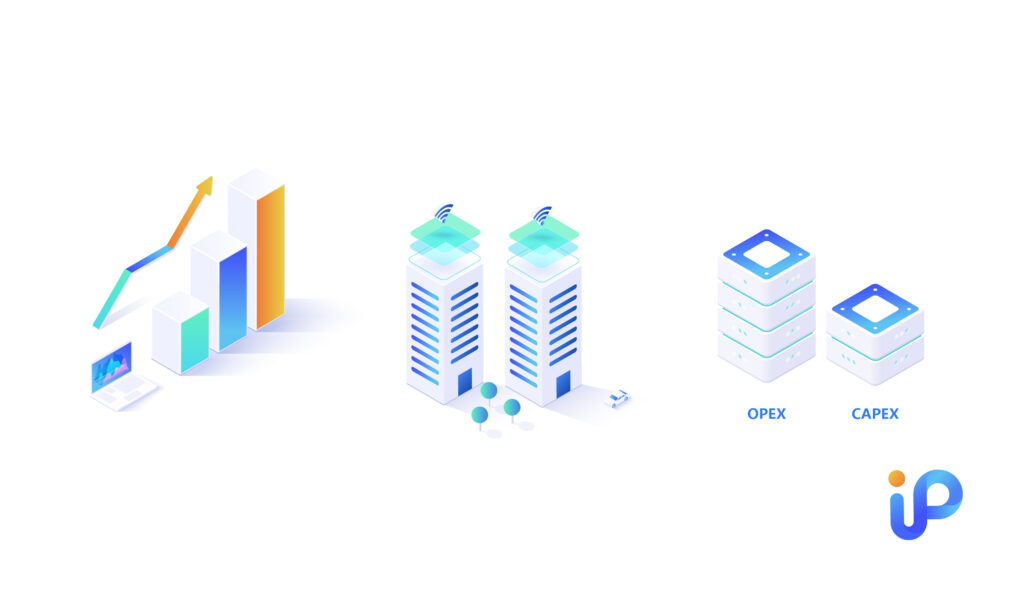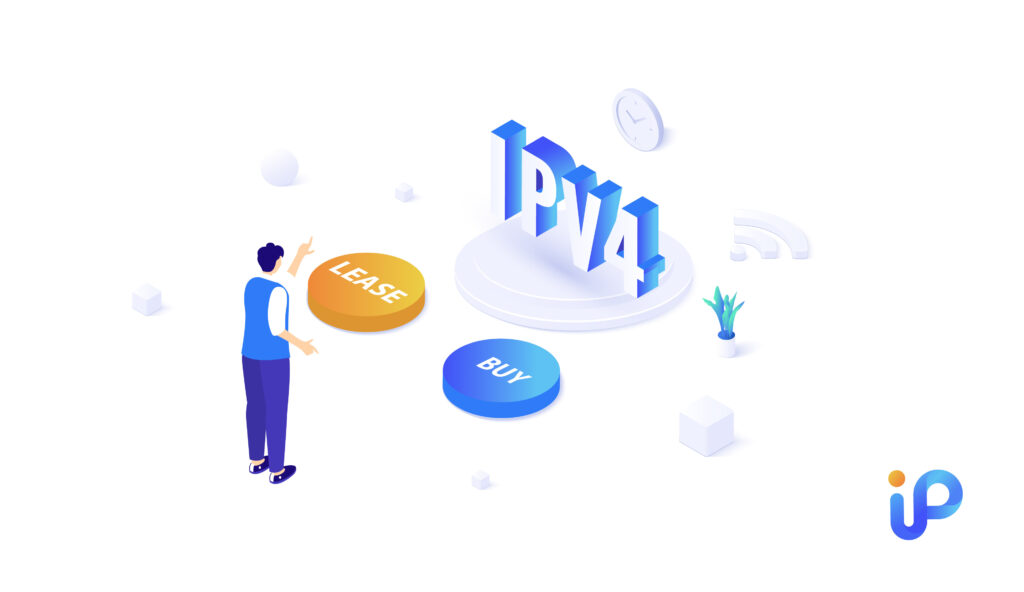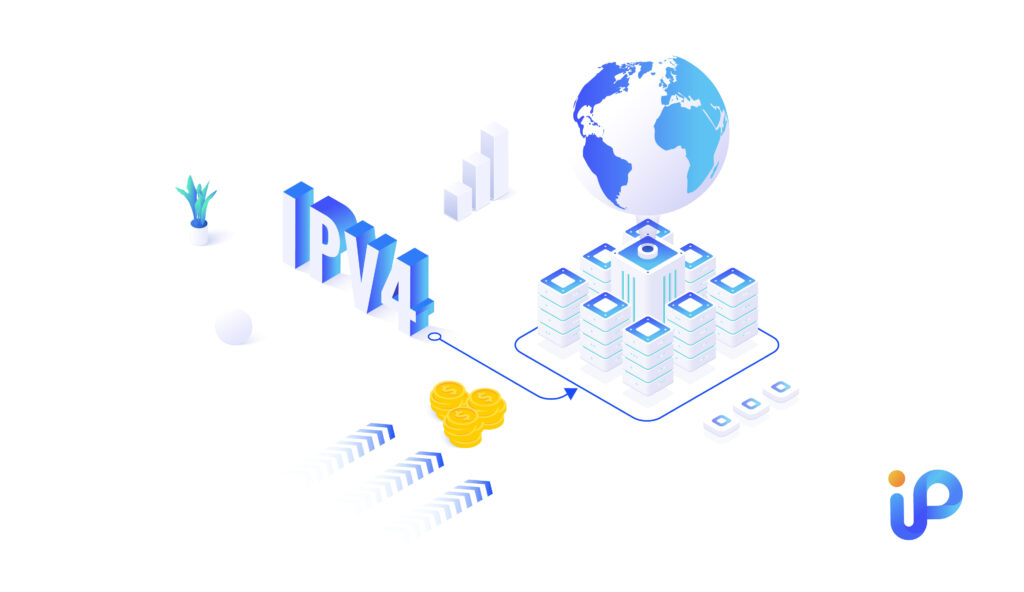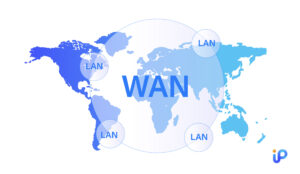8 Min Read | 31 Dec 2024 | Key Words: IPv4 Pricing, Market Trends,Resource Management, IPv4 Solutions
IPv4: From Connectivity Tool to Valuable Asset
IPv4 addresses were introduced in 1981 to uniquely identify devices on the network, ensuring smooth connectivity. As the internet grew, so did the demand, leading to the depletion of available IPv4 addresses. This scarcity transformed IPv4 from a technical necessity into a valuable digital asset. Today, they are commodities, with their limited supply driving up market value. Businesses can lease or buy IPv4 addresses to meet their needs, and these assets often generate revenue or strategic value.
With the depletion of IPv4 addresses, businesses must decide whether to lease or buy.This article explores the state of IPv4, the key differences between leasing and purchasing, and how IPv4 Superhub standardizes IPv4 leasing, providing flexible, reliable solutions for businesses.
Key Advantages of IPv4 Leasing
Efficient Resource Use
IPv4 leasing addresses scarcity by enabling temporary use of unused addresses. Practices like automated provisioning, RPKI adoption, and misuse monitoring enhance sustainability and support long-term resource management.
Cost-Effective and Flexible
Leasing offers a cost-efficient alternative to high IPv4 purchase costs. With KYC verification and abuse monitoring, businesses can scale without heavy upfront investments, similar to the shift from owning servers to using private clouds.
Fair Distribution
Leasing ensures fair access to IPv4 resources, reducing monopolization and enabling businesses of all sizes to obtain addresses when needed.
Bridge to IPv6
Leasing supports a smooth IPv6 transition by maintaining operational stability during the process.
Challenges and Misconceptions of Leasing
Varying policies among RIRs(Regional Internet Registries ) pose challenges and misconceptions for IPv4 leasing, hindering global standardization and causing operational difficulties for businesses.
APNIC Policies
APNIC strictly prohibits the leasing of IP addresses registered under its authority. It requires that allocated resources be used based on demonstrated need and mandates their return if the service provider ceases operations.
RIPE NCC Policies
RIPE NCC adopts a more flexible approach by facilitating leasing through temporary transfer policies. This allows greater adaptability in the use and allocation of IP resources within its jurisdiction.
In addition to policy differences, IPv4 leasing faces critical security challenges such as abuse risks and IP hijacking. Some lessees may misuse IP addresses for spam or malicious activities, while IP hijacking threatens the integrity of network resources. These issues increase the complexity of implementing leasing models and hinder broader market acceptance.
Proposed Strategies
To address these challenges and promote IPv4 leasing as an industry standard, the following measures should be adopted:
Policy Harmonization
RIRs should coordinate their leasing-related policies to establish a unified global framework, reducing operational complexity for businesses across regions.
Enhancing KYC Processes
Implement robust customer due diligence to ensure the credibility of lessees and minimize the risk of malicious activities.
Strengthening Abuse Monitoring
Develop advanced monitoring systems to detect and address abuse in real-time, safeguarding the security and integrity of IP resources.
By resolving policy inconsistencies and security concerns, IPv4 leasing can further optimize resource utilization, drive industry sustainability, and reduce misconceptions within the market.
Making the Right Choice for IPv4 Addressing

The IPv4 Market: Trends and Insights
The IPv4 market has undergone significant changes driven by address depletion and rising demand for IP resources.With the world transitioning to IPv6, the supply of IPv4 addresses is limited, which has driven up their prices. This scarcity has made IPv4 addresses a valuable commodity, and market conditions can influence pricing and availability.
Purchasing IPv4 Addresses:
USD 29 to USD 34 per IP (varies by region and block size)
Purchasing provides long-term stability and security, making it ideal for businesses seeking lasting control over their IP resources. It is particularly beneficial in regions with high demand, where securing IPv4 addresses can be challenging.
Leasing IPv4 Addresses:
Monthly lease: USD 0.7 to USD 1 per IP
Yearly lease: USD 7 to USD 9 per IP
Leasing is a flexible and cost-effective option for businesses needing scalability without a large upfront investment. It is especially suitable for companies with short-term IP needs or those in regions with lower demand.
Industry Nature and IP Needs
The nature of your industry plays a key role in deciding whether to lease or buy IPv4 addresses.
Cloud Providers and CDNs
Cloud services and CDNs need large IPv4 pools to handle traffic and ensure global delivery. Purchasing addresses provides long-term scalability and stability for companies like AWS and Akamai.
Internet Service Providers (ISPs)
ISPs rely on IPv4 addresses to allocate resources and support user growth. With limited supply, purchasing ensures long-term network performance and reliability.
Web Hosting Companies
Web hosting requires IPv4 for managing websites. Purchasing addresses offers scalability, while leasing addresses supports temporary or fluctuating needs.
E-commerce and Digital Services
E-commerce platforms often lease IPv4 addresses for seasonal traffic spikes. Leasing offers flexibility, while purchasing ensures stability for long-term growth.
Business Requirements: OPEX vs. CAPEX
The choice between leasing and buying IPv4 addresses depends on financial strategy, operational requirements, and future planning. Leasing offers flexibility for short-term needs, while purchasing ensures stability for long-term goals.
Leasing (OPEX)
Leasing, as an Operational Expenditure (OPEX), involves recurring costs without large upfront investment. Ideal for rapid growth, fluctuating demands, or temporary projects, leasing provides scalability but limits long-term control and increases reliance on third-party providers.
Buying (CAPEX)
Buying, as a Capital Expenditure (CAPEX), requires significant upfront investment but ensures ownership. Best suited for stable and predictable IP needs, purchasing provides long-term control, protects against market fluctuations, and supports strategic growth without external dependency.
Making the Decision: Lease or Buy?

In conclusion, the decision between leasing and buying IPv4 addresses is driven by several key factors: market trends, the specific needs of your business, and the financial structure that best supports your operations. Companies must weigh the pros and cons of both options in terms of their OPEX and CAPEX considerations.
Leasing is more suitable for businesses with short-term needs, tighter budgets, or flexible operations. It provides a low-cost entry point but lacks long-term stability and ownership.
Buying is ideal for organizations with long-term, stable needs that require complete control over their IP resources. It is a significant upfront investment but offers lasting value and security.
At IPv4 Superhub, we provide the support you need to make an informed decision, ensuring that your choice aligns with your organization’s goals and requirements.
Standardizing IPv4 Leasing and the Role of IPv4 Superhub
As an internet service provider, IPv4 Superhub offers transparent policies and an intelligent management platform to ensure the efficient allocation and utilization of IPv4 resources, helping to standardize IPv4 leasing and trading.
Leasing prevents address hoarding, optimizes resource use, and supports a smooth transition to IPv6, addressing the growing global demand for IP resources. IPv4 Superhub’s efforts contribute to the long-term sustainability and evolution of the internet ecosystem.




